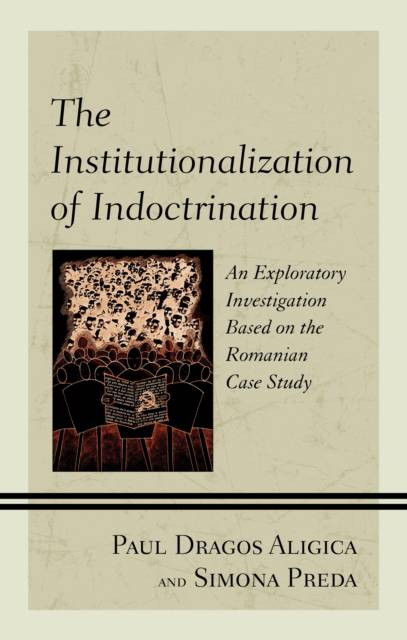
- Afhalen na 1 uur in een winkel met voorraad
- Gratis thuislevering in België vanaf € 30
- Ruim aanbod met 7 miljoen producten
- Afhalen na 1 uur in een winkel met voorraad
- Gratis thuislevering in België vanaf € 30
- Ruim aanbod met 7 miljoen producten
Zoeken
The Institutionalization of Indoctrination
An Exploratory Investigation based on the Romanian Case Study
Paul Dragos Aligica, Simona Preda
Hardcover | Engels
€ 178,45
+ 356 punten
Omschrijving
Combining a historical case study with theoretical framing, this book offers an exploratory contribution to our understanding of the institutionalization of indoctrination and propaganda, and of the associated social monitoring and control practices, both as they have manifested in the past, and as they may manifest in the future.
Specificaties
Betrokkenen
- Auteur(s):
- Uitgeverij:
Inhoud
- Aantal bladzijden:
- 194
- Taal:
- Engels
Eigenschappen
- Productcode (EAN):
- 9781793635495
- Verschijningsdatum:
- 27/06/2022
- Uitvoering:
- Hardcover
- Formaat:
- Genaaid
- Afmetingen:
- 152 mm x 229 mm
- Gewicht:
- 453 g

Alleen bij Standaard Boekhandel
+ 356 punten op je klantenkaart van Standaard Boekhandel
Beoordelingen
We publiceren alleen reviews die voldoen aan de voorwaarden voor reviews. Bekijk onze voorwaarden voor reviews.











